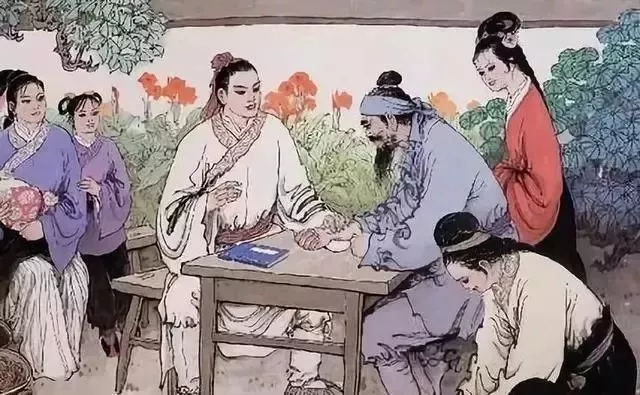
1. The pathogenesis of cancer is mostly blood stasis, phlegm coagulation, cold coagulation, etc.
It is wrong! Most cancers are caused by fire and toxicity, accounting for more than 80% of the cases. Other symptoms, such as phlegm coagulation, cold stagnation and dampness, are far less common than fire toxicity. Clearing heat and detoxification is the main theme of cancer treatment.
2. Cancer must have blood stasis evidence
This is wrong! For example, in rectal cancer, the pulse may not have any astringent sign and the tongue may not have any sign of blood stasis, but it is completely fire toxicity, and it can form a huge cancerous mass.
3. Treatment of cancer must activate blood circulation and remove blood stasis
Wrong! Many cancer treatments do not necessarily need to activate blood and remove blood stasis. According to Japanese medical research, the best anti-cancer herbal medicine is Xianhecao, but it happens to be a hemostatic medicine.
4. The main purpose is to kill cancer cells
Wrong! The treatment of cancer should be people-oriented, with the aim of patient survival, treating complications and maintaining normal vital signs are more important than just attacking cancer at all times. We cannot make the mistake that western medicine is obsessed with killing cancer cells. While cancer cells become fewer, the patient’s resistance decreases drastically and it is difficult to maintain life any longer.
5. Toxic cancer-attacking drugs are preferred
Wrong! Toxic cancer-attacking drugs are only suitable for those patients whose disease is found early and in good health. Patients with advanced cancer are as thin as wood and cannot eat, so they should not be attacked with toxic drugs to promote their quick death.
6. Cancer markers are the only criteria
Wrong! Cancer markers are only meaningful if they rise continuously and persistently; occasional rise can only be used as reference. The criteria for judging the improvement of cancer are mainly the presence or absence of metastasis and whether the cancer tumor has become bigger. The markers can only be used as reference.
7. If you see edema in cancer, you should use a lot of water-reducing drugs
It is wrong! Oedema in cancer is mostly caused by stagnation of blood vessels, poor circulation and failure to smoothly discharge waste fluid from the body. Treatment mainly relies on activating blood vessels to remove blood stasis and promoting water circulation. The blood vessels can be regulated and there will be no edema.
8. Tracheotomy is required in critical cancer cases with breathing difficulties
Not necessarily! In general, dyspnea can be partially relieved by acupuncture in Tiantu, Shaoshang and Shang Yang.
9. Pleural effusion must be drained by opening the chest
Not necessarily! Many cancer patients with pleural effusion can be solved with diuretic herbs, and Scape Daji Diarrhea Lung Soup has good effect.
10. Patients who cannot eat due to vomiting must be put down the gastric tube
Not necessarily! In most cases, the patient’s vomiting can be resolved with Chinese herbs, such as Semen and Ochre. Spinny ocher soup is preferred.
11. Patients in pain must be given morphine, pethidine, etc.
Not necessarily! Chinese herbs can relieve most of the patient’s pain by activating blood circulation and resolving blood stasis. External application of Chinese herbs is also effective in relieving pain, and drugs such as salvia can be injected into meridian points to relieve pain. A comprehensive pain relief method can solve most of the problems. Unless the pain is severe and cannot be suppressed, morphine etc. will be used.
12. Chinese and Western medicines cannot be used together to treat cancer
Not necessarily! It has been proved that Chinese and Western medicines can be used together for cancer treatment without much conflict. However, the time of taking Chinese medicine and Western medicine should be separated.
13. Cancer is mostly deficient and should be treated with certain supplemental medicine at the beginning
Not necessarily! The patient’s pulse should prevail, and there is no need to add tonics if the patient is not deficient. It is not necessary to add tonic medicine when the patient is not deficient, and do not add tonic medicine such as ginseng easily when the patient has high fever. When the patient has high fever, supplementation is not beneficial, and excess qi is fire (of course, the exception is when qi and fluid are too weak).
14. Use a lot of medicine to stop bleeding when there is bleeding in cancer
Not necessarily! Because most cancers have hypercoagulable blood, their bleeding is due to blood heat, so first of all, it is necessary to cool the blood, and secondly, to stop the bleeding. We should use those drugs that can both invigorate and stop bleeding, such as dragon’s blood, artichoke, cyperus, cypress, pu huang, and flower stamen.